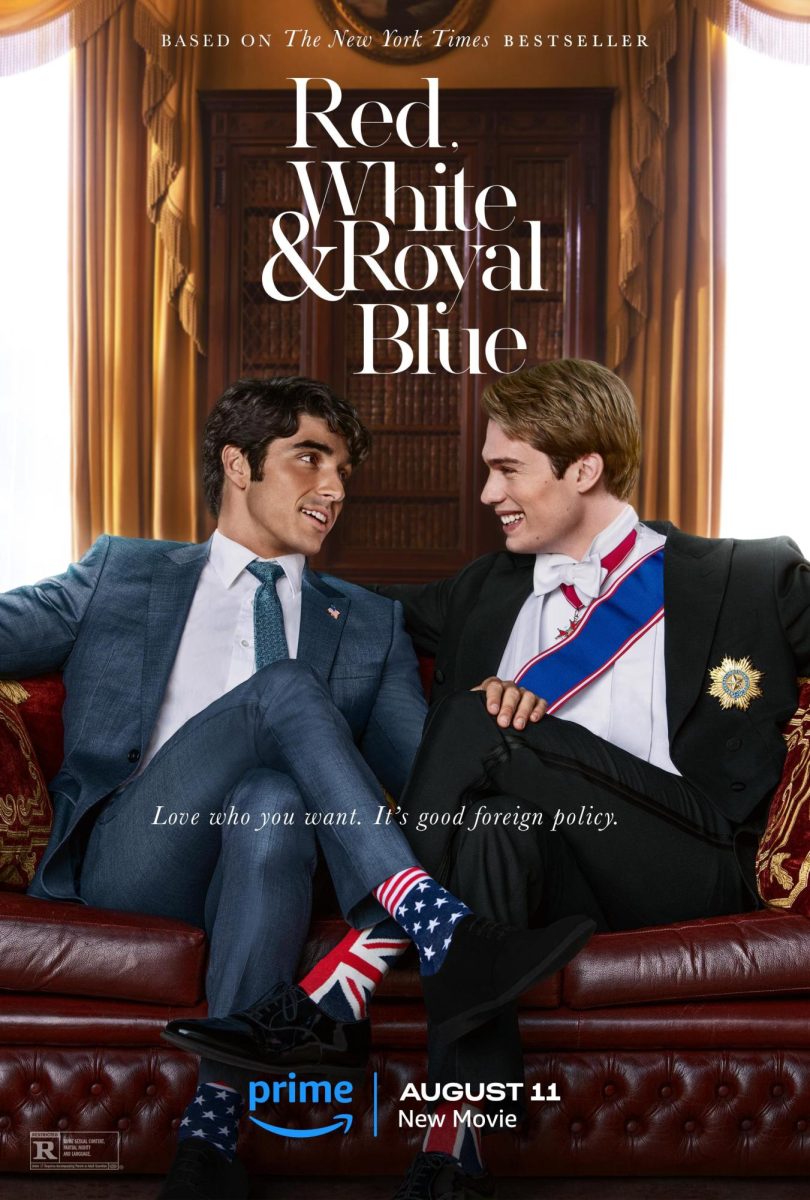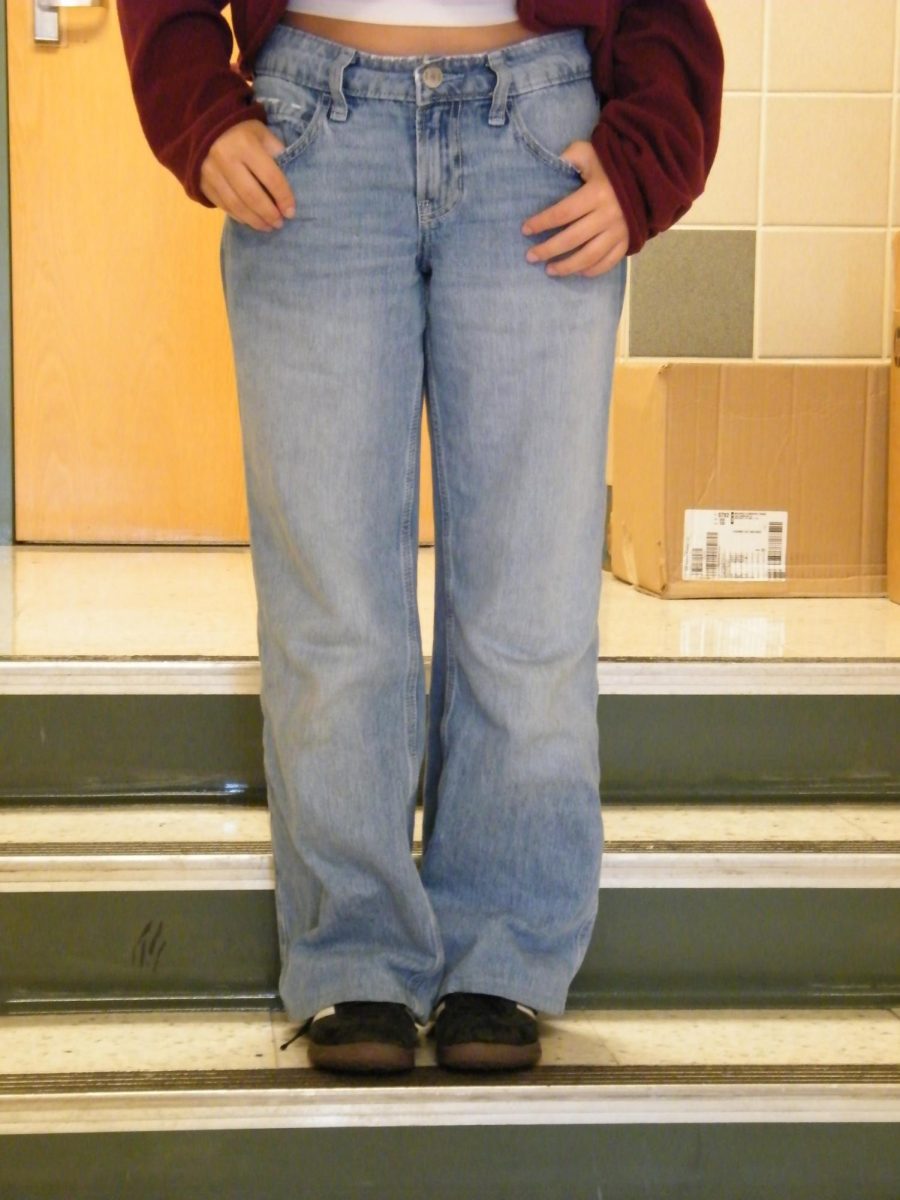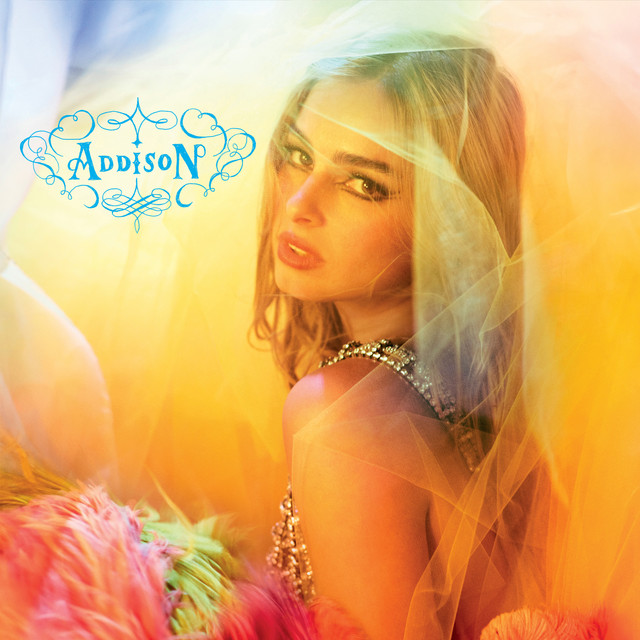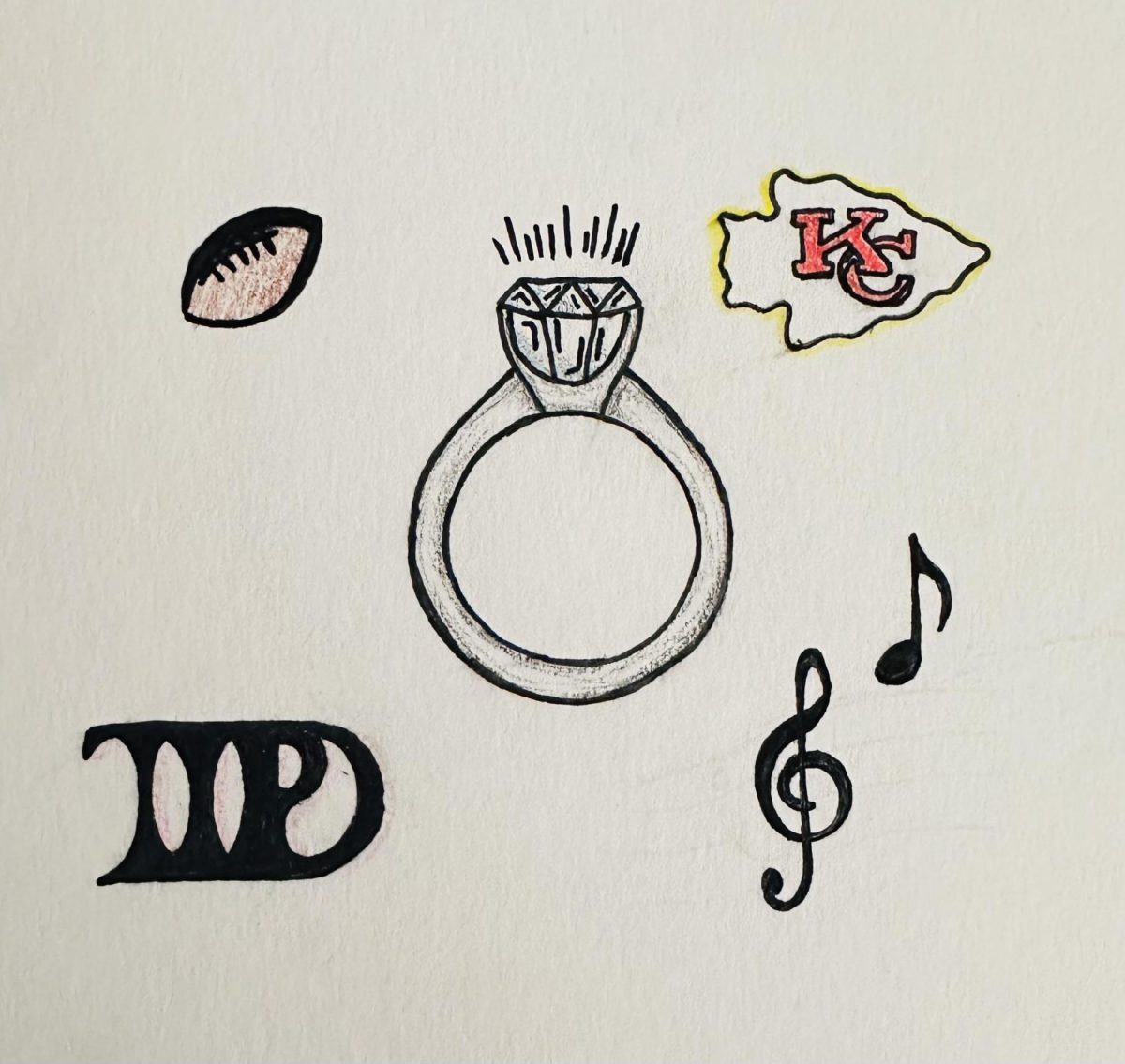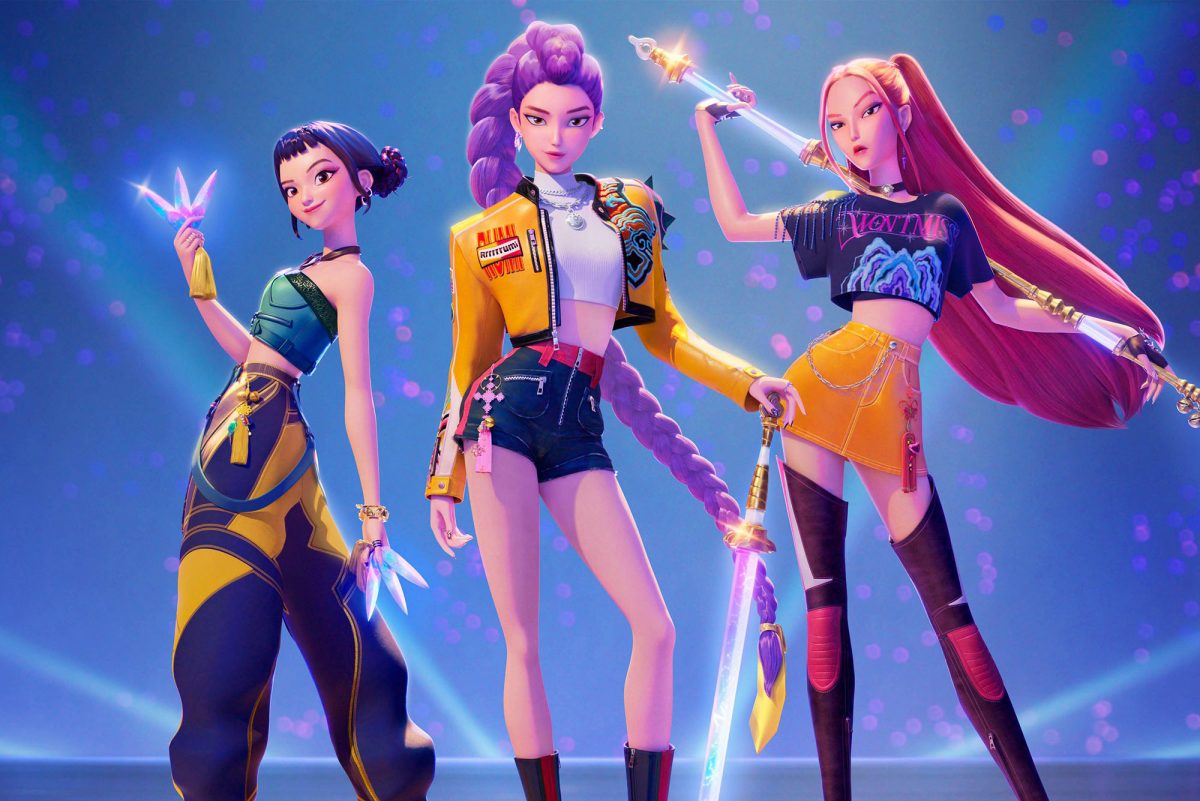Released on Aug. 11, Amazon Prime’s film “Red White and Royal Blue” both underwhelmed and overwhelmed me throughout its 2-hour duration. Directed by Matthew Lopez as his debut, this rom-com features a diverse cast- powerful and gut-wrenching performances from high-demand actor Nicholas Galitzine, to seasoned actress Uma Therman as the headstrong, accepting first female president of the United States.
The film follows Alexander Claremont-Diaz (Taylor Zakhar Perez), the daring and adored First Son of the United States, and his budding romance with the passionate yet misunderstood Prince Henry of Wales (Nicholas Galitzine). After an international incident pulls them into the spotlight together, they have to navigate their high-profile public lives while learning to love each other for who they are, not for what the world wants them to be.
A quirky, political queer rom-com with a star-studded cast? To some people like myself, this concept is to die for. However, it is essential to point out this idea was pioneered perfectly in Casey McQuiston’s novel of the same name.
The book “Red White and Royal Blue” came out in May of 2019 and within months of its release, over 100,000 copies were sold. The novel made it onto the New York Times Best Seller list, causing McQuiston’s debut into the world of writing to be a successful one.
The book was generally well-received, with around 850,000 reviews on the book review website Goodreads, resulting in an overall rating of 4.1 stars. I myself read the novel seven times over the course of three years, just to relive the beauty this book possesses. It’s moving, sexy, and tear-jerking in all the best ways. There is never a dull moment on a single one of Mcquinston’s 421 pages. You feel every bit of Henry’s frustration with the Crown’s outdated ideals, and anxiously turn the page as the Claremont’s re-election campaign results are up in the air.
Much like the book, the film has been impressing audiences around the globe. It is certified fresh on Rotten Tomatoes, and with over 2,500 plus ratings, it has an audience score of 93%. To that point, in the first three weeks after its release, it was the number one movie worldwide on Prime Video. Impressively, it has already become Prime Video’s top three most-watched romantic comedy films of all time.
In light of all the movie’s success, what breaks my heart the most about this film is that for a movie being based on the book, there are many inconsistencies. It fell flat in areas the book had perfected tenfold. Lively and layered characters felt one-dimensional and unlikeable. Whole scenes and characters were cut out or altered to accommodate for the movie’s showtime.
The main victims of these changes were the story’s depth and main characters, especially Alex. The film primarily follows Alex, yet he became the character with the least amount of growth.
The three most notable character removals were Alex’s sister, June, Senator Raphael Luna, and Alex’s old friend Liam. These removed personalities were all very important to Alex’s development, especially his own sister, June. She was by his side all throughout their mother’s political career and her time in the White House. She grounded his tendency to be fiery and impulsive while complimenting his passionate nature. Besides herself being a hilarious character, she was the person that originally sparked Alex’s interest in Henry years before they actually met. Without spoiling too much of that important moment, let it be known that in the book this point added layer’s to Alex’s journey of self-acceptance.
To compensate for June’s absence, Alex’s discovery of him being bisexual was removed as well. Characters like openly gay Senator Rapheal Luna guided Alex through this process. But, as Alex’s journey was taken out, so was Luna.
Most importantly, Alex’s high school best friend, Liam, doesn’t exist in the movie’s universe either. In the book, when Alex and Liam would have sleepovers, they would ‘fool around’ with each other, under the guise of a friend helping out another friend.
Alex’s ‘bi-awakening’ was a pivotal drive to the book, which connected with audiences like myself so deeply. But, Alex never questions his sexuality in the movie, so we see no confusion about that part of himself when he kisses Henry for the first time.
To run with the new narrative that Alex has been sure of his bisexuality this whole time, the film makes a villain out of a new character named Miguel Ramos (Juan Castano). He is a journalist that Alex had hooked up with before the events of the movie. Miguel’s actions towards Alex and Henry’s relationship becomes one of the major climaxes throughout the film.
The antagonist in the book can be interpreted as Ellen Claremont’s opponent in the election, Republican presidential candidate Senator Jeffery Richards. Richards is mentioned in the movie, but not at all focused on at the capacity the book provides. This is due to the complete removal of all things political from the film.
What felt so unique about the book was the intense undertone of political tension and the waves the Claremont family were making in the realm of the United States government. Alex’s struggle to be a part of his mother’s campaign was entirely forgotten. At that, the book’s artistic comparison of the monarchy and democracy put an intellectual edge to an otherwise delicate romance novel. In the movie, there still is the subplot of the election, but the finely stratified political plot of the book is unfortunately lost.
Moreover, Lopez made the decision to age up the characters, regrettably leaving ‘cringey’ scenes littered throughout the film. The book showcases the main characters Henry, June, Nora, and Alex being powerful and popular 20-somethings, but in the movie they aged the remaining characters up to their 30s.
I can understand why Lopez came to this conclusion, as Perez is 31 years old and Galitzine isn’t far behind. But, that made the movie feel like another painful attempt to engage Gen. Z audiences, or honesty, the director’s may have fully embraced this film as a Millennial’s ideal fantasy and let the cringe flow freely.
The crowning example of cringe was seen when Alex and Henry began texting each other after making an appearance at a children’s hospital together. To start their conversation, His Royal Highness, Prince Henry of Wales uses a bitmoji. A bitmoji.
I had to pause the movie and take that in for a second. I tried very hard to move past it, but the everlasting feeling of cringe would keep creeping back in. It was such a millennial touch to add, because if they were sticking to the book in any way regarding how the characters actually are, Henry would have never used a bitmoji, and I stand by that analysis.
This switch to texts also made Henry and Alex’s emails less important. Their primary form of communication in the book was through emails. Though this could be seen as a minor, and almost modern, alteration, it completely changed the context to the text’s most infamous quote- “History, huh? I bet we can make some.” This was written to Henry from Alex over an email, but was shoved into a completely different scene in the movie.
It is most important to note that all of these changes were agreed upon by McQuiston, as she worked on the film’s production. Though I understand a film cannot be perfectly adapted from its novel, but total changes to scenes, characters, and plot points?
My overall review of this film is surely mixed, resulting in a rating of 3.5 out of 5 stars. I definitely wasn’t upset with the film. I had been waiting for it to release since I first started to hear rumors circulating of Amazon picking up the project back in 2020. I made sure to keep Aug. 11 free of plans so I could eagerly consume the movie in one take as soon as it was uploaded to Amazon Prime.
I was overjoyed to finally see my favorite scenes play out before my eyes, no longer solely in my imagination. Scenes like Henry’s polo match, Alex’s fear of the pardoned Thanksgiving turkey, and their karaoke night in Texas where Henry sings “Don’t Stop Me Now” by Queen made me smile so wide it hurt. Certain creative changes like simulating one of Alex and Henry’s phone calls by placing Henry in Alex’s room was unexpected but a thoughtful touch to the moment.
But truly, the movie’s saving grace was its excellent casting. No fan-casting could have ever predicted the wonderful crop of actors Lopez’s team put together. Everytime I read the books, Perez and Galazine were exactly what I was imagining. They truly brought those scenes to life in the most beautiful way possible.
However, my recommendation for casual watchers who don’t share my over-passionate interest in this work is to simply watch the movie. By itself, this film is perfect for someone who doesn’t want something serious. Regardless of my critiques, it is still a dazzling and enjoyable movie to pass the time with.
On the contrary, if you truly want to get something out of this piece of media and feel it’s intended hard-hitting message of self-discovery and self-worth, read the book first.


